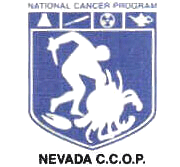Rituximab, Methotrexate, Vincristine Sulfate, Procarbazine Hydrochloride, and Cytarabine With or Without Radiation Therapy in Treating Patients With Primary Central Nervous System Lymphoma
| Status: | Active, not recruiting |
|---|---|
| Conditions: | Cancer, Cognitive Studies, Cognitive Studies, Other Indications, Lymphoma, Neurology |
| Therapuetic Areas: | Neurology, Oncology, Psychiatry / Psychology, Other |
| Healthy: | No |
| Age Range: | 18 - Any |
| Updated: | 12/27/2017 |
| Start Date: | September 2011 |
| End Date: | September 2026 |
Phase II Randomized Study of Rituximab, Methotrexate, Procarbazine, Vincristine, and Cytarabine With and Without Low-Dose Whole-Brain Radiotherapy for Primary Central Nervous System Lymphoma
RATIONALE: Monoclonal antibodies, such as rituximab, can block cancer growth in different
ways. Some find cancer cells and help kill them or carry cancer-killing substances to them.
Others interfere with the ability of cancer cells to grow and spread. Drugs used in
chemotherapy, such as methotrexate, vincristine sulfate, procarbazine hydrochloride, and
cytarabine, work in different ways to stop the growth of cancer cells, either by killing the
cells or by stopping them from dividing. Radiation therapy uses high energy x rays to kill
cancer cells. It is not yet know whether rituximab and combination chemotherapy are more
effective when given with or without radiation therapy in treating patients with primary
central nervous system lymphoma.
PURPOSE: This randomized phase II trial studies how well giving rituximab and combination
chemotherapy with or without radiation therapy works in treating patients with primary
central nervous system lymphoma.
ways. Some find cancer cells and help kill them or carry cancer-killing substances to them.
Others interfere with the ability of cancer cells to grow and spread. Drugs used in
chemotherapy, such as methotrexate, vincristine sulfate, procarbazine hydrochloride, and
cytarabine, work in different ways to stop the growth of cancer cells, either by killing the
cells or by stopping them from dividing. Radiation therapy uses high energy x rays to kill
cancer cells. It is not yet know whether rituximab and combination chemotherapy are more
effective when given with or without radiation therapy in treating patients with primary
central nervous system lymphoma.
PURPOSE: This randomized phase II trial studies how well giving rituximab and combination
chemotherapy with or without radiation therapy works in treating patients with primary
central nervous system lymphoma.
OBJECTIVES:
Primary
- To determine median progression-free survival (PFS) in both arms on an intent-to-treat
basis.
Secondary
- To determine overall survival (OS) defined as the interval from randomization to death
due to any cause.
- To determine treatment-related neurotoxicity rates and disease-related cognitive
deterioration in each arm, through the following methods: prospective formal
neuropsychological evaluation, utilizing competing-risk methodology to account for death
as a competing risk to neurotoxicity or cognitive deterioration from relapsed tumor
burden/salvage treatment and incidence of clinically defined neurotoxicity as per
investigator's assessment.
- To determine if there exists differences between the two treatment arms in terms of
health-related quality-of-life and symptoms over time.
- To determine response (partial response (PR) and complete response (CR)) rate after
methotrexate-based chemotherapy and after consolidation whole-brain radiotherapy (WBRT).
- To determine chemotherapy-related toxicity, measured by Common Toxicity Criteria for
Adverse Effects (CTCAE), v.4.0.
OUTLINE: This is a multicenter study. Patients are stratified according to Memorial
Sloan-Kettering Cancer Center recursive-partitioning analysis (RPA) classification for
primary central nervous system lymphoma on age and Karnofsky performance status (KPS) (Class
1: age ≤ 50 years vs Class 2: age > 50 years and KPS ≥ 70% vs Class 3: age > 50 years and KPS
< 70%). Patients are randomized to 1 of 2 treatment arms.
- Arm I: Patients receive rituximab IV over 5 hours or per institutional guidelines on
days 1 and 15, methotrexate IV over 2 hours on days 2 and 16, vincristine sulfate IV on
days 2 and 16 (courses 1 and 2 only), and procarbazine hydrochloride orally (PO) on days
2-8. Treatment repeats every 28 days for 4 courses in the absence of disease progression
or unacceptable toxicity. Patients then receive consolidation therapy comprising
cytarabine IV over 3 hours on days 1-2. Treatment repeats every 28 days for 2 courses in
the absence of disease progression or unacceptable toxicity.
- Arm II: Patients receive rituximab, methotrexate, vincristine sulfate, and procarbazine
hydrochloride as in arm I. After completing chemotherapy (2-5 weeks later), patients
without progressive disease undergo low-dose whole-brain radiotherapy once daily, 5 days
a week, for approximately 2.5 weeks (13 fractions total). Patients then receive
consolidation cytarabine as in arm I.
Patients may undergo blood and buccal sample collection for future correlative studies.
Paraffin-embedded tissue block of primary tumor or a core tumor tissue punched from the
tissue block, and cerebrospinal fluid may also be collected.
Patients may also complete the Hopkins Verbal Learning Test-Revised (HVLT-R), the Trail
Making Test Part A and Part B, the Controlled Oral Word Association Test (COWAT), and the
Quality of Life (QOL) questionnaires at baseline and periodically during study.
After completion of study therapy, patients are followed up every 2 months for 2 years and
then every 6 months for 3 years.
Primary
- To determine median progression-free survival (PFS) in both arms on an intent-to-treat
basis.
Secondary
- To determine overall survival (OS) defined as the interval from randomization to death
due to any cause.
- To determine treatment-related neurotoxicity rates and disease-related cognitive
deterioration in each arm, through the following methods: prospective formal
neuropsychological evaluation, utilizing competing-risk methodology to account for death
as a competing risk to neurotoxicity or cognitive deterioration from relapsed tumor
burden/salvage treatment and incidence of clinically defined neurotoxicity as per
investigator's assessment.
- To determine if there exists differences between the two treatment arms in terms of
health-related quality-of-life and symptoms over time.
- To determine response (partial response (PR) and complete response (CR)) rate after
methotrexate-based chemotherapy and after consolidation whole-brain radiotherapy (WBRT).
- To determine chemotherapy-related toxicity, measured by Common Toxicity Criteria for
Adverse Effects (CTCAE), v.4.0.
OUTLINE: This is a multicenter study. Patients are stratified according to Memorial
Sloan-Kettering Cancer Center recursive-partitioning analysis (RPA) classification for
primary central nervous system lymphoma on age and Karnofsky performance status (KPS) (Class
1: age ≤ 50 years vs Class 2: age > 50 years and KPS ≥ 70% vs Class 3: age > 50 years and KPS
< 70%). Patients are randomized to 1 of 2 treatment arms.
- Arm I: Patients receive rituximab IV over 5 hours or per institutional guidelines on
days 1 and 15, methotrexate IV over 2 hours on days 2 and 16, vincristine sulfate IV on
days 2 and 16 (courses 1 and 2 only), and procarbazine hydrochloride orally (PO) on days
2-8. Treatment repeats every 28 days for 4 courses in the absence of disease progression
or unacceptable toxicity. Patients then receive consolidation therapy comprising
cytarabine IV over 3 hours on days 1-2. Treatment repeats every 28 days for 2 courses in
the absence of disease progression or unacceptable toxicity.
- Arm II: Patients receive rituximab, methotrexate, vincristine sulfate, and procarbazine
hydrochloride as in arm I. After completing chemotherapy (2-5 weeks later), patients
without progressive disease undergo low-dose whole-brain radiotherapy once daily, 5 days
a week, for approximately 2.5 weeks (13 fractions total). Patients then receive
consolidation cytarabine as in arm I.
Patients may undergo blood and buccal sample collection for future correlative studies.
Paraffin-embedded tissue block of primary tumor or a core tumor tissue punched from the
tissue block, and cerebrospinal fluid may also be collected.
Patients may also complete the Hopkins Verbal Learning Test-Revised (HVLT-R), the Trail
Making Test Part A and Part B, the Controlled Oral Word Association Test (COWAT), and the
Quality of Life (QOL) questionnaires at baseline and periodically during study.
After completion of study therapy, patients are followed up every 2 months for 2 years and
then every 6 months for 3 years.
DISEASE CHARACTERISTICS:
- B-cell non-Hodgkin lymphoma (NHL) involving the brain, as demonstrated by contrasted
MRI and histologic confirmation by one of the following within 6 weeks prior to
registration:
- A positive cerebral spinal fluid (CSF) cytology for lymphoma or a monoclonal
lymphocyte population as defined by cell surface markers
- A biopsy of the vitreous or uvea demonstrating NHL
- Brain biopsy
- Patients in whom the type of lymphoma could not be determined or is unknown
(e.g., not enough tissue for further analysis) are assumed to have a B-cell
lymphoma and are eligible
- Patient must agree to submit tissue (i.e., the original H/E-stained slides and
immunohistochemistry studies) for central pathology review post-registration
- No evidence of systemic NHL as demonstrated by a CT scan of the chest, abdomen, and
pelvis within 6 weeks prior to registration
- Bone marrow biopsy is not required for registration but must be obtained prior to
start of treatment
PATIENT CHARACTERISTICS:
- History and physical examination within 6 weeks of registration
- Karnofsky performance status (KPS) equal to 50% or higher, with the following
exception:
- KPS 30% to 50% are eligible if the reason for the poor performance status is
neurologic deficit from primary central nervous system (CNS) lymphoma
- Patients with KPS 30% to 50% due to reasons other than primary CNS lymphoma
are ineligible
- Patients with KPS under 30% for any reason are ineligible
- Absolute neutrophil count (ANC) ≥ 1,500/mm³
- Platelet count ≥ 100,000/mm³
- Hemoglobin (Hgb) ≥ 8.0 g/dL (transfusion or other intervention to achieve Hgb ≥ 8.0
g/dL is acceptable)
- Bilirubin < 2.0 mg/dL
- Aspartate aminotransferase (AST) < 2.5 times upper limit of normal
- Serum creatinine < 1.5 mg/dL
- Calculated creatinine clearance (CrCl) > 50 cc/min (CrCl from a 24-hour urine
collection may also be used)
- Women of childbearing potential and male participants must agree to practice adequate
contraception during therapy
- Patient must be able to swallow pills
- Patient must have documentation of negative HIV-1 testing within 6 weeks prior to
study registration
- No prior invasive malignancy (except non-melanomatous skin cancer) unless disease free
for a minimum of 3 years (for example, carcinoma in situ of the breast, oral cavity,
or cervix are all permissible)
- No severe, active co-morbidity, defined as follows:
- Unstable angina and/or congestive heart failure requiring hospitalization within
the last 6 months
- Transmural myocardial infarction within the last 6 months
- Acute bacterial or fungal infection requiring intravenous antibiotics at the time
of registration
- Chronic obstructive pulmonary disease exacerbation or other respiratory illness
requiring hospitalization or precluding study therapy within 30 days before
registration
- Hepatic insufficiency resulting in clinical jaundice and/or coagulation defects
- Laboratory tests for liver function and coagulation parameters are not
required for entry into this protocol
- Known pre-existing immunodeficiency as seen in organ transplant recipient
- No prior allergic reaction to any of the study drugs involved in this protocol
PRIOR CONCURRENT THERAPY:
- No prior treatment with chemotherapy or radiotherapy for lymphoma or chronic
lymphocytic leukemia
- Prior chemotherapy for a different cancer is allowable
- No prior cranial irradiation
- No concurrent intensity-modulated radiotherapy
We found this trial at
45
sites
Click here to add this to my saved trials
West Michigan Cancer Center In 1994, Borgess Health Alliance and Bronson Healthcare Group opened the...
Click here to add this to my saved trials
University of Rochester The University of Rochester is one of the country's top-tier research universities....
Click here to add this to my saved trials
Saint Joseph Mercy Hospital St. Joseph Mercy Ann Arbor Hospital is a 537-bed teaching hospital...
Click here to add this to my saved trials
22 South Greene Street
Baltimore, Maryland 21201
Baltimore, Maryland 21201
410-328-7904

University of Maryland Greenebaum Cancer Center The University of Maryland Marlene and Stewart Greenebaum Cancer...
Click here to add this to my saved trials
136 Mountainview Blvd
Basking Ridge, New Jersey 7920
Basking Ridge, New Jersey 7920
(908) 542-3000

Memorial Sloan-Kettering Cancer Center - Basking Ridge At Memorial Sloan Kettering Basking Ridge, we offer...
Click here to add this to my saved trials
Click here to add this to my saved trials
Click here to add this to my saved trials
Click here to add this to my saved trials
Rush University Medical Center Rush University Medical Center encompasses a 664-bed hospital serving adults and...
Click here to add this to my saved trials
Click here to add this to my saved trials
University of Cincinnati The University of Cincinnati offers students a balance of educational excellence and...
Click here to add this to my saved trials
Case Western Reserve Univ Continually ranked among America's best colleges, Case Western Reserve University has...
Click here to add this to my saved trials
Cleveland Clinic Foundation The Cleveland Clinic (formally known as The Cleveland Clinic Foundation) is a...
Click here to add this to my saved trials
Penrose-Saint Francis Healthcare Founded by the Sisters of St. Francis and the Sisters of Charity,...
Click here to add this to my saved trials
650 Commack Rd
Commack, New York 11725
Commack, New York 11725
(631) 623-4000

Memorial Sloan-Kettering Cancer Center at Commack Memorial Sloan Kettering Cancer Center - the world's oldest...
Click here to add this to my saved trials
Geisinger Medical Center Since 1915, Geisinger Medical Center has been known as the region’s resource...
Click here to add this to my saved trials
Click here to add this to my saved trials
Click here to add this to my saved trials
Click here to add this to my saved trials
601 South Rancho Drive
Suite C-26
Las Vegas, Nevada 89106
Las Vegas, Nevada 89106
(702) 384-0013

Nevada Cancer Research Foundation CCOP The Nevada Cancer Research Foundation Community Clinical Oncology Program (NCRF-CCOP)...
Click here to add this to my saved trials
Dartmouth Hitchcock Medical Center Dartmouth-Hitchcock is a national leader in patient-centered health care and building...
Click here to add this to my saved trials
Loyola University Medical Center Loyola University Health System is committed to excellence in patient care...
Click here to add this to my saved trials
Click here to add this to my saved trials
9200 W Wisconsin Ave
Milwaukee, Wisconsin 53226
Milwaukee, Wisconsin 53226
(414) 805-3666

Froedtert and the Medical College of Wisconsin Froedtert Health combines with the Medical College of...
Click here to add this to my saved trials
Columbia University Medical Center Situated on a 20-acre campus in Northern Manhattan and accounting for...
Click here to add this to my saved trials
Memorial Sloan Kettering Cancer Center Memorial Sloan Kettering Cancer Center — the world's oldest and...
Click here to add this to my saved trials
Thomas Jefferson University Hospital Our hospitals in Center City Philadelphia share a 13-acre campus with...
Click here to add this to my saved trials
Click here to add this to my saved trials
Click here to add this to my saved trials
Click here to add this to my saved trials
Click here to add this to my saved trials
Click here to add this to my saved trials
Click here to add this to my saved trials
Click here to add this to my saved trials
700 Lawrence Expy
Santa Clara, California 95051
Santa Clara, California 95051
(408) 851-1000

Kaiser Permanente Medical Center - Santa Clara At Kaiser Permanente Santa Clara, members and patients...
Click here to add this to my saved trials
Click here to add this to my saved trials
Click here to add this to my saved trials
Click here to add this to my saved trials
Click here to add this to my saved trials
Click here to add this to my saved trials
Click here to add this to my saved trials
Click here to add this to my saved trials
Click here to add this to my saved trials
Click here to add this to my saved trials












